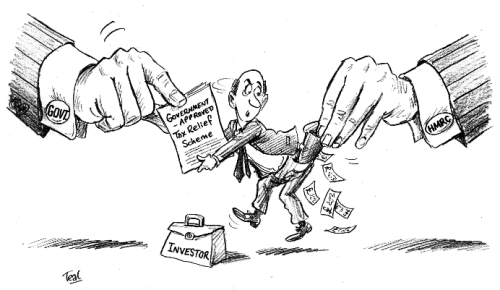Those readers of a certain age will remember the mantra ‘tax avoidance is legal, tax evasion is not.’ This seems to have faded into the past however. Great yardage of print has been devoted to ‘outing’ pop stars and the like who have been advised to put money into tax avoidance schemes, with the clear implication that what they have done is illegal. It is not. HMRC neither approves nor outlaws such schemes in advance. Those who invest do so on the basis that the schemes might be challenged in the future and if the challenge is successful, the disputed tax will have to be paid. Why does HMRC not allow or disallow such schemes before they go to the market? There seems no logical answer except, possibly, that the efficiency of such a policy might generate redundancies.

But while one branch of government bashes tax avoiders, others have promoted exactly the kind of schemes that HMRC is now challenging. Until 2008, individuals could obtain “section 48” tax relief on film investments. A separate tax relief for film production companies has been extended until 2015. Meanwhile for example, someone who invested £300,000 in the ‘Eclipse’ film partnership which involved a highly leveraged investment to buy the distribution rights to films such as ‘Pirates of the Caribbean 2’ is facing a tax bill of about £1.5 million. This is because the Revenue is demanding tax on income that was never received because of the intentional operational losses which, at the time, qualified for tax relief. The overriding message from all this is that there is no longer such thing as a ‘safe’ tax avoidance scheme. Far better to take a deep breath and pay what is owed.
The above is the lead article in our monthly News Notes. Please click here for information regarding these notes.
